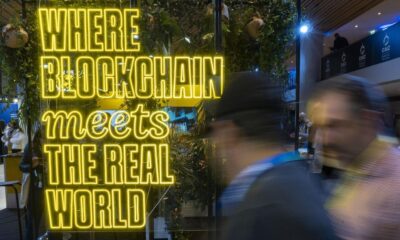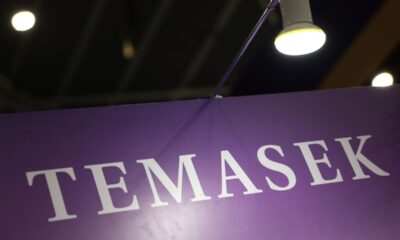News
Blockchain technology meets munis in Quincy, Massachusetts

Enjoy complimentary access to top ideas and insights — selected by our editors.

Transcription:
Transcripts are generated using a combination of speech recognition software and human transcribers, and may contain errors. Please check the corresponding audio for the authoritative record.
Michael Scarchilli (00:05):
Hi everyone, and welcome to the Bond Buyer podcast, your go-to source for all things municipal finance. I’m Michael Scarchilli, editor-in-chief of the Bond Buyer. And this week we are taking a hard look into how issuers are tapping technology to both transact in the market and think about how to use tech tools to more effectively and efficiently run the business of the government. In a first of its kind transaction, in April, the city of Quincy, Massachusetts issued $10 million of tax exempt bonds using blockchain technology. Taking the first step in what those involved in the transactions say could be a game changer for the muni bond market. Quincy Mayor Tom Koch, CFO, Eric Mason and strategic asset manager Rick Coscia, talked to Bond Buyer, executive editor Lynne Funk about why Quincy decided to test the waters with the transaction, how they think it will provide cost savings, liquidity, and more access for retail investors. They also discuss how Quincy is finding ways to lure in a younger generation of public finance government employees in a time when state and local governments are finding the effort challenging. And with that, let’s get started and dive into this week’s conversation.
Lynne Funk (01:22):
So I would love to kick this off. You had a really interesting transaction back in April. It was $10 million of debt issued using the blockchain technology distributed ledger technology, which is a collection of digital systems that record transactions in multiple locations almost simultaneously. Mayor Koch, I would love you to kick us off here. Can you just tell our listeners about how you came to decide to price this first of its kind deal? Why did you do it? How did you do it?
Thomas Koch (01:53):
Well, first of all, we do a lot of bonding in the city. We get a healthy budget. We’re an old city, so we’re been updating our infrastructure, whether it’s buildings or pipes or roads, a lot of great projects, a lot of public infrastructure updates that had been long overdue. So we were in the market frequently on a number of projects, including new schools. We get reimbursements from the state. I depend heavily on Eric Mason and Rick Coscia who advise me on timing of these things. The way to go about it, what are the options are for the city, what makes sense and the newer world that we’re moving into, this seemed to make sense to give it a shot. So $10 million is a low number for us actually, but we thought it was a good number to try this out.
Lynne Funk (02:40):
Great. Eric, would you want to kind of talk a little bit about how you structured this? How did this deal get done? Who was involved? Yeah,
Eric Mason (02:47):
Yeah, absolutely. Obviously it comes from top-down approach. So yeah, it’s a conversation. I mean, all bonding is, well, bonding is certainly financial, but certainly policy setting too. Additionally, city council president Ann Kain was a big advocate of this, but in terms of structuring an individual deal, it was kind of unique. We have a really, really good team involved in this both internally and externally. So Rick Coscia obviously leading up the bond efforts in addition to even Mike Roland too as a financial operations manager, because think of it this way, everything we bond has to be deployed. So that’s always be concert between the barring action and the implementation action. But externally, Hilltop Securities is their financial advisor. We have Locke Lord, who was invaluable bond counsel. Then also working with JPM, I mean it’s their product and their platform. Additionally, we had Blockwise come on as advisors for this is the first time we’re doing a blockchain bond in the United States.
(03:49):
It’s good to have experts who understand the underlying technology, but overall, I mean it’s a team effort inside and out in terms of structuring the actual deal to market. Rick can get a little more into that, but it was really about matching the maturity to where the demand of the market is. But as an economist, it’s always hard when you have a new market to figure out where demand is. So it was very interesting. It was a very interesting conversation. We really put the negotiated into negotiated debt when it came to this. But Rick, do you want to jump into a little bit of the structure itself, sir?
Rick Coscia (04:17):
Yeah, absolutely. So I think the mayor kind of made the most salient point on this in that it made a lot of sense for Quincy to do this because we have such frequent issuers. So if you are a small community and you don’t go to market a lot, you’re probably not going to be that interested in it because you don’t go to market as much. You’re not going to see, ultimately what we’re hope to see is lower transaction costs and enhanced liquidity and just more efficient transaction in the equity market’s a little bit easier. If you want to buy a stock or you want to invest, there are plenty of platforms, there’s plenty of buyers and sell. The municipal market’s a little bit different. The secondary market is really important, so it’s a lot less efficient, meaning to buy and sell, you have to, it’s more of a niche market.
(05:08):
So being a frequent issuer that we go to the market so frequently we knew this is something we wanted to look at because when you issue a bond, you’re incurring issuance costs, you’re incurring transaction costs, you’re paying third party intermediaries like your underwriters and your financial advisors and your bond counsel and any other consultants. So ultimately I think the reason we did this was because we see this as the future. There’s no arguing that this is going to be the way transactions are done, maybe not next year, maybe not in two years, but ultimately that’s the way that this is going to go, just like any other investment transaction. So we want to be part of it. The mayor is always tasking us to say, ‘look, can we do things more efficiently? Can we do things better? Can we save money? Is there ways of doing this in a better way?’
(05:54):
So we went forward with it. In terms of how we structured it, again, we wanted to dip our toe in the market a little bit. It was a $10 million deal. As Mayor Koch said, it’s a lot of money, but in the big scheme of things, in the big picture, it’s not. But for the city, we just recently we’re going got authorization for $157 million to do a couple of new parking garages for a development in our downtown, and we wanted to do it in a way that wouldn’t have a negative impact to our budget. So we structured it in a way that’s a seven year maturity. So we looked at the numbers and we made sure the principal and interest wouldn’t have, like I said, a deleterious effect on our budget. And listen, we got a lot of guides, Eric and I would like to think we’re the smartest guys in the room and we’re not.
(06:42):
But we got a lot of guidance from our financial advisors, from JP Morgan. It was their platform. So they took the entire deal down themselves. They took the $10 million down them themselves. While they’re doing that though, they were also building out the secondary market, their platform. So to buy these bonds, you had to be on JP Morgan’s Onyx platform and they have several large investment managers that are in the process of doing that. But we wanted to be first, we’re in a better situation, a better situation than a lot of other communities and a lot of other deals that are in play now. And I think one of the questions you’ll probably ask is we were the first, are there any other deals going on? And there are, but we wanted to be first and we were able to do that, like I said, with our consultants help as well as JP Morgan’s help. So hopefully that answered your question.
Lynne Funk (07:29):
It does. I think, can you go a little more granular here though? I’m just curious in terms of how does this type, how does blockchain transaction provide cost savings for issuers like yourself?
Eric Mason (07:42):
It’s two part. So the first one is whenever you break down barriers, you have the effect of barriers are expensive, it’s inherent nature of financial barriers. So by breaking out barriers and democratizing the process, even as something as, it’s funny, I was on Bloomberg, I refer to municipal bonds as boring, and one of the hosts of the close is like, oh, they’re great, they’re tax free income, all this stuff. But sometimes it’s hard to find efficiency in the boring because it’s been so optimized. I mean, find something more regulated than municipal borrowing. So that’s why great advance. When you have something that’s as structured as municipal debt, it takes great advancements to create return. So by breaking down these barriers, we make it a lot less expensive to enter the market. And having the reporting mechanism tied to the financial vehicle the entire time means RERE reporting, which is a very expensive process, is optimized to a point where it’s not like every time you sell this bond, it has to be rerecorded, it has to follow the same paper trail.
(08:44):
The paper is always attached to, which is also much safer. But the second portion is, and certainly the economic side of it, is that when you open up the market, you have more demand. And when you have more demand and you have fixed supply, people are willing to incur a higher price to buy the bond and a higher price to the buyer is a lower price to us, the seller. So there’s the economics of it, which is fascinating. And the finance side of it, it’s just a better product. It’s the same reason why we don’t sell physical savings bonds anymore. But yeah, it’s
Rick Coscia (09:20):
The only thing I would add, Lynne, is as you know, we do a bond deal, we’ll sell a hundred million dollars worth of bonds and it’s always the usual suspects that buy our bonds. I mean, it’s going to be institutional investors, it’s going to be a mutual fund companies, it’s going to be insurance companies and investment managers. And a small portion of that will also be separately managed accounts. SMAs and in those SMA are high, high net worth clients. So those are the ones that typically buy our bonds. And one of the things I think the may probably talk about this is that one of the things we wanted to do, or the tasks that he asked us to look into is the democratization of this, right? So if you are a constituent in Quincy and you see a new public safety building going up, but we’re selling bonds for that.
(10:06):
We’ve had conversations with people like, gee, I would’ve liked to have, I live in Quincy. I’m going to live my whole life in Quincy. I see the development going on in the city. I’d like to have kind of invested in some of the infrastructure that you’re doing here. This overtime is going to allow that. Where again, when we do a hundred million dollars, that deal is usually over subscribed for six, eight times within the first couple hours. So a lot of those, I guess the retail investors, the retail bond buyers, they kind of shut out of this. This ultimately will open that up. So
Lynne Funk (10:36):
We’re talking right now, I’m an investor. I live in Quincy. I don’t have $5,000 for a bond. Maybe I have a thousand, maybe I have 500. Is that why the goal is with this type of transaction where you open up the universe to the retail investor who maybe doesn’t have the $50,000, democratizing the amount of bonds that they can purchase?
Eric Mason (10:59):
Yeah, yeah, absolutely. That’s the long-term goal is this technology works on the penny par and it works on 5,000 par, the 50,000 par we want. See, one of the things the blockchain is that because of its association with crypto, its association with technology, a lot of traditional investors are turned off to it because the complexity to learn it can sometimes be daunting. But what’s funny is that there’s no new, I always said there’s no new economics. Economics is nothing new under the sun. What we see now as we reduce that par, say we reduce it down to the penny, that’s no different than what happened between exporting countries and importing countries exporting nations want really, really low value of currency because it creates an advantage and import export. Same thing here. The city who is exporting this debt wants the lowest units possible because that makes it easier to sell than the open market.
(11:53):
There’s no loss of value. We’re just changing the unit. And to have that ability to change the unit, and the only thing stopping that unit change for the last a hundred, 200 years was that the reporting requirement to be able to actually generate the note and secure and do all that was quite costly. It required a lot of expertise where now we can digitize that. So similar like sending an email, you get the same information in an email as you do in mailing a letter, but you do it for free. That’s really that democratization side of it that we’re looking to engage with
Thomas Koch (12:27):
I, which is pretty cool. I mean, we do financial literacy programs in the high schools and we’d like to do more of it, but at some point we’ll have these discussions in there and I think that will help young people understand the whole idea of what the market is all about when it comes to the bonding. I know Rick used the reference of the public safety headquarters run our fifth new school. I think the Squam Elementary School will be one that I think some people would love to be part of, whether it’s a 500 bucks or a grand or 10 grand to be in it because they either attended it, their kids are going there, it’s just there’s this connection they would have to their own commute. I think it’s pretty exciting. So we’re looking forward to that next step. Excellent.
Rick Coscia (13:10):
Just one thing real quick. You talked about where the cost savings act, one of the aspects is really, it’s really blunt. It’s you’re going to have less parties involved. So when we get to that point where you want to be an investor you want to invest in or purchase bonds that are going to fund the new Squam Elementary School right now, you have to either go through the underwriters, you have to go through who that underwriter is to sell you those bonds going forward. Once you’re on that platform, once, if you were on the JP Morgan platform, you would’ve been able to buy those bonds directly. You wouldn’t have to have gone, and the issuer doesn’t have to go sell those bonds through the underwriter. They can sell ’em directly from that platform. So it just ultimately over time, we’ll cut out that middleman. And if you’re cutting out middleman, then you’re ultimately cutting out costs too and you’re seeing savings, and that’s a long game on it.
Lynne Funk (14:04):
Excellent. So I have to ask you, mayor Koch, did this somewhat stem from, you host Quincy, Massachusetts host a blockchain event? Can you talk about that? It’s broader, it’s outside of Munis. Is that kind of where this all came from or is it come together at the same time?
Thomas Koch (14:21):
Probably in part, I mean our council president, Ian Kain is heavily involved in that world and advocates that all the time. I’ve got the best municipal finance department around. These guys are on top of everything, new technology. That’s not my world. I hire the best and listen. So yeah, so I get a lot to learn in that whole world. But Eric and my team, I mean Rick and the whole team, they dive into these things. They become expert on it. They get the outside help and we need the help on these things. But yeah, I mean that whole blockchain, the president of the council invited me down to do some opening remarks and first time they had it, and I think I said something along the lines is, I don’t know what you do. I know why I am here, but I know really what the hell you guys do, but I hope you have a great week. Welcome to Quincy. So I’ve learned a little bit more since then, but I’m at that age where some of the stuff is a little intimidating, but there’s hope for even me, but the world is changing and we’ve got to be part of that.
Lynne Funk (15:28):
Right. So you’re saying mayor, that perhaps Eric and Rick are being humble and they are the smartest guys in the room
Eric Mason (15:34):
In your group? Absolutely know I’m not. No, just ask my wife
Thomas Koch (15:39):
Not on every issue, but certainly they serve me well serve the city well.
Lynne Funk (15:47):
Excellent. So can you talk about perhaps, and I’ll open this up to you all, how does FinTech figure into, factor into city planning? How technology, how FinTech, what are you all focused on right now in terms of that?
Eric Mason (16:06):
Yeah, so the word FinTech has just evolved so much over the last 10, 15 years. I remember when I first started in college, the idea of FinTech was this marriage between your financial operations and your IT department, but now it’s turned into everything from smart streets. I very much appreciate the mayor’s compliments on municipal finance, but always trying to learn and grow. But I’ll tell you, some of the departments, especially like T pal, just traffic parking alarm and lighting, the team over there, I mean they really thought of that integration into bringing technology onto everything. We see it in our fire department with bringing on software that firefighters are going to fight fires, they’re pulling out iPads that are tied into the permitting software so they know what the buildings look like. And this just goes on and on and on in terms of this detail.
(16:55):
But when we talk about FinTech integration in the larger form, if we just talk about traditional definition within finance and technology, the IT director for the city, Ryan is really somebody that I’ve come to love working with and we’ve always had a string of good IT directors, but it’s that marriage where you understand that there is no such thing as a separate finance software and a separate technology stack, that your tech stack is your financial operations now. And there’s something called a toll bear model in government. Basically government’s always 20 years behind in technology. It’s like an old economic model that people used to reference and yeah, it’s true government’s behind and that’s why it’s strange that especially from a policy standpoint through the mayor, that government was the first to do a blockchain deal in the United States, especially outside of the 5 0 3 and 5 0 6 processes.
(17:45):
So what FinTech looks like to us is I would describe it as ubiquitous and invasive. It’s always trying to be stacked together to get the greatest force multiplier. When we first brought in our ERP, it was underutilized and it made it very painful to use. But one of the things the mayor has done over time is not just engage in that ERP or bring on experts using that ERP to integrate through it. And there’s also a little time factor. I mean, having younger people coming into the workforce who are used to ERPs means major FinTech. Your FinTech approach can be much more aggressive because people are more used to using the software. But having that nice marriage of institutional knowledge flowing through the application into the FinTech, into the overall accounting structure you can create with a well and matured industry and workforce, really effective usage. It’s not just a software to me, it’s not just software. It’s software and people. You combine those two together, it’s really impressive what can be generated.
Rick Coscia (18:48):
Yeah, one byproduct, I would say through the whole adoption of FinTech and blockchain technology is something that weaves its way into every transaction. It’s the security element of it right now. It’s a very manual, believe it or not, it’s not sure working for bond buyer, I’m sure this, it’s a very manual archaic way of selling securities, which when is very manual and archaic, it can lend itself to mistakes, it can lend itself to potential fraud, and blockchain is kind of tightens up that transaction chain. So the only people that can take part in that transaction are those who have been approved and any change has to be approved by everyone on that blockchain. So that I think was a really a big important part of it as well. I mean municipalities is seeing it if companies are seeing the fraud and there being cyber acts and things like that. And this again is just one more step in terms of just making sure the city is secure and how we do business and how we transact bond sales is much more secure.
Lynne Funk (19:59):
That’s an interesting point you bring up, Rick, because when you say cyber, how does blockchain, how does it deter cyber or how does it protect cybersecurity for transactions?
Eric Mason (20:13):
Yeah, I mean it’s a scale game. The ability to break a blockchain, I mean there are probably countries that don’t have that level of computing power. Realistically, everything gets overtaken by everything, right? There’s always going to be a new technology. There’s always going to be a faster car, faster rocket, but there are just upper limits and it’s a resource game. If you look at cybersecurity like a war, the wars are won through resources. Even with some of the modern cubic level quantum computers, even at 50 qubits, you’re really becoming towards the upper limit of being able to break and sustain a break of a blockchain. That’s the key here. When our treasurer Molly Smith, who’s also absolutely valuable in this process, we’re very lucky to have very, she comes from a private sector background. Again, Quincy Paris lives in the city, but she handles, she’s the one who sends out the millions of dollars of debt payment every year, and she was vital in this process.
(21:15):
And when we first were on the Onyx platform and she was going through it, every time she moved the cursor, clicked on a new thing to look at the bond, it was re-engaging that it’s one thing to hack into a system. It’s one thing to break a vault, nothing to hold a vault open. And seeing that in there and realizing just the monumental power it would take to create fraud in this system, to get inside of it and manipulate it, that’s reassuring. It’s like sitting inside of a tank. It’s not just safer drivers, it’s a safer product. So I think that’s a big one. In the second one, I’m going to give kind of a boring answer. When we pay bonds, we bring out the wires. They have to be up by 10:00 AM They have to be US bank for distribution after that by 2:00 PM or you get a paper default with blockchain technology because the ledger is decentralized, everybody knows who is owed everything. It just comes, it’s like a direct deposit I should say.
Thomas Koch (22:10):
Is that a Sherman tank or an Abrams tank?
Eric Mason (22:12):
I prefer the Abram. I think there’s more reactive armor on it, but yeah, it comes right out the account, you’re paying your water bill. There’s no risk of a paper default, which I know is a little different from the cybersecurity, but it’s still a concern.
Rick Coscia (22:29):
No, that was another element, the enhanced liquidity. We get those funds in because those funds are used a lot of times, whether it’s DPW or some of these other departments, they’re depending on those funds to pay their contracts for the work that’s being done. That is going to be done, and the turnaround time is much more efficient. We’re going to see those funds in a lot, I think it was several days as opposed to usually it takes us over, can take us seven to 10 days for those funds to come in. That was definitely shrunk down. And I’ll just say, I’m kind of repeating myself, but something the may have said earlier is that we’re in the market a lot. I can’t stress it enough that Eric and I are in the market so often because we have such an aggressive agenda, and that’s because of the guy in the corner, right hand, right hand corner that we have such an aggressive agenda and really the city has gone through a renaissance over the last 15, 17 years that it makes sense we’re a perfect candidate for this type of transaction because we’ll see this savings over time.
(23:27):
If you’re just issuing once or twice a year, yeah, maybe it’s like, look, we’ll, we’ll just do it the old way. We don’t care. We don’t go to the market that often, but it’s the law of returns the more often you’re in the market. It makes sense for you to look for ways to kind of do those transactions and be more efficient in that work.
Lynne Funk (23:46):
So how far away are you all from doing a hundred million? From doing 200 million? How far away are other issuers from replicating this? I guess I’m just curious. Is it a matter of just people dipping their toes and doing it or,
Eric Mason (24:01):
Yep. We’re already seeing the trend Europe, we’re already seeing these larger issuances going through. It’s about everybody getting comfortable with it. I was at a conference shortly after, actually the day we got the funding for this, I was at a conference in New York talking about this, and Lynne, you hit the question on the head. That’s exactly what was asked me because I’m sitting front, it’s a conference. I was pretty much all CFOs and so they’re all like, I’m kind of interested in this. And it felt very bizarre because CFOs, we tend to be the most financially conservative people, an organization as a public sector, CFO. I should have been the most conservative person in a room full of conservative financial individuals. So talking about blockchain was actually kind of funny, but no, I mean the skill works, it goes up. Siemens did a massive one.
(24:44):
I mean Switzerland, who we worked closely with their CFO, it’s scalable. The thing is about getting comfortable, and here’s why I think government hit it first. It’s what the mayor said. We have different incentives. We’re trying to bring the lowest cost and democratize the debt. So the Squam schools got a hundred million dollar note. If the mayor wants to aim it for that a hundred million and let’s democratize this, we can start setting up a strategy for that. I don’t think there’s an upper limit to the scale on here. I think it works on the 10 million. I think it’ll work on the a hundred million.
Rick Coscia (25:16):
I think you’ll look, you’ll see some when we were going through our process and we had to go through a pretty lengthy process to get all the regulatory hurdles overcome. But on the corporate side, I know we’re on the municipal side, but you’ll see corporate deals over a billion dollars. Eric mentioned the one in Switzerland, but you’re going to see, yeah, I mean you’ll easily see billion dollar deal.
Lynne Funk (25:39):
Europeans definitely are typically ahead of the US in these types of things.
Rick Coscia (25:44):
Well, their regulatory requirements, let’s just say little more. Let’s use the word flexible than the us. I like the spa, but you won’t see a billion dollars in cleansing. We sure about that. No.
Lynne Funk (26:02):
Well, this is a good little segue for a second to kind of talk about Quincy itself. The city itself. You are what, 11 miles south southeast of Boston? Boston has center.
Thomas Koch (26:14):
Yeah, center. The center. I mean we border Neponset River together.
Lynne Funk (26:18):
Got it. Boston has had its fair share of challenges from commercial real estate vacancies, transit ridership, drops, but far as I can tell, it looks like Quincy’s economy has bearing been faring quite well. Do you want to get into why that is? I would love to hear it.
Thomas Koch (26:35):
Okay. A couple of things. One is I think Quincy was one of the best kept secrets for a long, long time. I mean location, proximity to Boston, four stops on the red line commuter rail ferry, 27 miles a coastline. We are about the seven or 8,000 acres of blue hills, all kinds of opportunities. Safe city, great school system. I could go on and on. The school is, schools are thriving, the city’s thriving in so many ways, but at the end of the day, in my early years when things were a little bumpy financially, it took office, the financial meltdown began and we had to get a fiscal house in order. If you don’t have your fiscal house in order, then the schools aren’t going to be what they can be. We can’t maintain a infrastructure like we should. So getting that the financial household rental was huge, and this team has been tremendous in doing that.
(27:28):
So we’ve got a good reputation in the marketplace. People like to buy our debt. There’s a reason for that and we are thriving. We didn’t get caught up in commercial. We’ve been doing a lot of residential, which is, as you know, there’s a great shortage for housing stocks for people in the greater Boston area, and we’ve been embracing that. We’re between six and 7,000 units since I’ve been there, which has pretty hefty, but it’s been awesome and it’s provided additional tax revenue. It provides jobs for the construction portion of it. I mean, it could go on and on. We have a great city with the seventh largest city of Massachusetts, and I would argue since we’ve reorganized our government, created new departments, we are acting like a city our size now, and that includes the municipal finance department at all. They’re doing
Lynne Funk (28:16):
How large is the city? I actually, I’m sorry, I forget.
Thomas Koch (28:20):
Well, we’re 17 square miles, but the population by federal counts about a hundred thousand, 2000. I would argue we’re probably closer to 110, 112 maybe we truly can count it, but the attics and boiler rooms and things, but we will leave that alone. But again, we’re seventh largest. I think we’re 14th largest in New England, but as an urban area, we get the lowest crime rate. One of the same for an urban school district. We are very successful. Kids do very well in this district. We spend a lot of effort and time in making sure those kids have that opportunity to succeed. So I’m very proud to serve as mayor. The city is really grown. We’ve reclaimed our history. Next couple of years we’re going to go on the ground for a new Adams presidential center to really speak to the history of this country, and it all started right here in many cases by the hand and pen of John Adams. So we’ve got a remarkable road and we’re just getting going.
Lynne Funk (29:19):
So you’re telling me with all this housing stock, you’ve got some retail investors out there.
Thomas Koch (29:25):
Oh, absolutely. When you have the housing stock, it leads to a lot more retail.
Lynne Funk (29:34):
So actually just as another quick aside here, I did want to pivot over to a topic that is I think I’m hearing so much about, and that is that state and local governments are having challenges with hiring for people such as Eric and Rick in terms of the government getting finance folks in. There’s a shortage of accountants, there’s a shortage of just people interested, young people, particularly in getting into public finance, getting into government,
Thomas Koch (30:00):
I guess. Yeah, that’s one of the areas and we’re really focused on, we’re building a great farm system here. I’ve got a lot of young people, Eric … Rick’s not so young, but Eric falls in that category of the young guys. Colleen Haley who I brought on, she was the youngest chair of the assessors in the history of the city. She did a remarkable job turning things around, and many of our departments are now infiltrated with a lot of young people. A lot of young people don’t think about government, they really don’t coming out of school. But when it’s exposed to them and they’re part of something because it’s not just going to work nine to five and going, well, no, you see what you’re involved in day-to-day in the life of a city. When you’re part of the government here, you’re part of the case of talk a lot about bonding.
(30:51):
So Rick and Eric, they drive by that school. Hey, they were part of a financing of that building. I mean, it really gives greater buy-in, especially if you come from the community and you love the community, you feel like you’re contributing, you feel like you’re being part of something that’s much greater than yourself. And I think as we’ve exposed a lot of young people to this, they’ve bought in and one of the challenges with some communities is paying the help they need to pay as well. And we have upgraded our department managers department heads to a level that’s far more competitive. That’s another aspect of it, but we’re getting a lot of work done and we’re having a lot of fun
Eric Mason (31:27):
As a product of that farm system daily. I’ve always joke about two jobs in my life, both on Hancock Street. I pumped gas at my family’s gas station and then I’ve worked for city hall. So I worked at 819 Hancock and I worked at 1305 Hancock Street. Yeah, I was brought on at 21. I don’t know if you thought this is how this is going to turn out, but plus
Thomas Koch (31:49):
I did.
Lynne Funk (31:52):
Eric, may I ask, can you tell our audience how old you were when you were tapped? A CFO?
Eric Mason (31:58):
Yes. I was 26. I
Lynne Funk (31:59):
Thought so, yeah,
Eric Mason (32:01):
About a year before I came on, I wasn’t allowed to rent a car and that was fun. Best thing about being as young as I was, I could ask so many stupid questions. It was awesome. One of the things that the mayor did when he came on is that he rebuilt a lot of our relationships, like our independent auditors, our independent financial arms. So Jim Powers, who is the city’s auditor, independent auditor, one of the most well-respected minds and the entire, definitely in the state, but probably in the country because I’ve been in conferences with him for us CPA stuff, not just Mass CPA. He and I got along great. He actually grew up pumping gas, also comes from a blue collar of family like me and May would just send me down to his office and be like, alright, go talk to Jim and Wakefield, figure out how, learn the tax rate, learn auditing and all that stuff.
(32:53):
And I was like, I’m a little brother. I know I missed the forest through the trees a lot. But having the opportunity when you’re young to basically sit there and be like, I’m going to ask you a lot of dumb questions, a lot of dumb questions. We do a lot of smart answers. That’s definitely one thing I learned in this job, but being part of that farm system because it’s a supportive environment and I don’t think you get that a lot in government. I don’t think you get that a lot in the private sector either where you have the CEO of the city of the mayor taking time to work with the farm system to work with the young kids, encourage the mistakes being made. I always tell that to my interns. I’m like, make mistakes. You’re not need to cure cancer, make mistakes. You’re going to fall down.
(33:29):
We’re going to pick you right back up because that’s what the mayor did for me. So who am I to do something different than that? And you end up building this really robust system. Mike Roland, who’s our financial operation manager’s office, is just on the other side of that wall. Same thing. He was an intern when he was 18, 19 years old, and now he builds the budget for the city and they become committed to it. If you could see that little cardboard box, I know we’re on a podcast, so let’s do, but there’s a little card poster board the mayor to run the head. It’s different than this. We’re $500 million a year budget. We have 1.3 billion in current assets. It doesn’t even include our ability to tax is 290 million a year. I don’t even if you propagate that further down the road, that’s a huge operation.
(34:12):
I always say this, if you have a company doing 41 million a year on revenue in your city, your expenditures, that’s a big company. That’s just our police department, just our police department. We are spending half a billion dollars out on the streets and it’s mostly local. We employ over 4,000 people. This is the conglomerate, but do what I enjoy. My favorite project I’ve ever done, we’ve done the pension obligation bond. That was amazing. The blockchain bond, that was amazing. There’s all these great projects. We’ve done the learning Center, which is a special needs school. I know the mayor can dive into a lot more in detail than me. That’s what that poster board is. That’s what I keep in my office. I keep those poster boards. That was my favorite project we’ve ever done because at the end of the day, this type of financial knowledge, I went to a big state school.
(34:54):
I have friends all over doing crazy stuff with finance that is interesting to me. But what I think it’s cool is that we could take these towns and I took it to city. I grew up in my family. I grew up on Ry. I grew up five and a half miles from where the gas station I worked at and I sit there. I went to Quincy Public Schools and now knowing that there’s a building and the mayor saw an old former candy factory, I think it was Johnson’s Candy Factory a little bit before my time boss, and it got turned into a place that can house educate 300 kids with autism spectrum disorder. But I think of that the next step. I mean they’re going to do speech therapy there. I was in speech therapy for seven years of my life. I had a law of promise with speech, still have a law of promise with speech, but they’re going to do physical therapy, occupational therapy, and I think do what I think of these kids get on this bus.
(35:47):
They have to go an hour out to some school an hour back. One of the things the mayor has kept here is we have neighborhood schools. So now those kids can go to school in the morning, get their PT and OT they need and their speech therapy and their specialized care in district then go back to their schools. Those kids are forming friendships that when they move to high school are statistically shown to not just increase their rate of their rate of graduation, but their education, their mental health, little stuff like that. I’m sorry, you’re not getting on the private sector. They could pay you more. They could do all that stuff. And as Mary said, we went through more than a couple of compensation analysis in the last couple of years. It’s competitive, but that is a lot of happiness and utility to be able to use the stuff you studied in school and the stuff you wanted to specialize in and what do you get to use it for? Making sure special needs kids have a better life. Come on. That’s not something you’re getting in the private sector. And I saw a broke record, I said that to anybody who’s looking in the local side. I’m like, can’t beat that.
Rick Coscia (36:43):
Well, I had a little bit of a not different perspective, but yeah, in terms of my perspective, I came from the private sector. I was in the private sector 25 years on investment management. And coming in I thought, well, to be honest with you, I was like, I’m going from private sector to government. Am I going to be bored? And so I worked with the mayor and I met a bunch of times and it has been, I’ve been pleasantly surprised how ambitious and this city is run like a large corporation in a good way. I mean, we have ambitious goals. Those goals are kind of communicated and we’re given the tools to carry out those goals and to execute them. And so again, you talked about young people coming into government that’s attractive and I know I’m going to pay the mayor a compliment even though he called me old. But I think that all comes from the vision of the CEO.
(37:44):
I’ve lived in Quincy my entire life, born and bred here. I’ll probably die here. And I have over the last 15 to 17 years, the city has just gone through this. I keep using the word, the Renaissance, this revitalization. There’s so much pride going on and he’s right. I’ll go out driving with my wife and we actually drove by the Chris building last night on the way back from the in of Bay Point. And yeah, it’s kind of cool saying, I grew up here, I was born here and I worked here, and we helped in a little way of carrying out the vision of building five new schools, of seeing the total redevelopment of the downtown, of new public safety buildings, new roads and sidewalks. It’s a really cool place to live. It may me using this analogy, but it’s the same thing that’s happened to a lot of these other communities like the Somerville and the Cambridges, and these were not cool places to live 20 years ago.
(38:41):
They were punchline. Like I said, now they have some of the most popular places to live. The market values reflect that, and that’s what’s really, there’s just this pride of of home that you’ve seen in the city that it’s just tangible. And I think that’ll be attractive to young people. Believe me, I get a lot of calls from friends who are like, listen, I’m ready to make that jump. Is there anything happening in the city? And I don’t think that was the case 10, 15 years ago. You’re right. I think it was like, well, I don’t work the city. This debate will be different. I won’t be doing as many cutting edge things. At least that’s not the case in Quincy. I mean, I’m fairly new to the municipal side, but I’ve been pleasantly surprised. It’s been great.
Lynne Funk (39:26):
It’s definitely, that’s good to hear. I think sometimes we see a lot of negative headlines and I think these are sort of positive ones to share and share with the industry itself. And so many times some people say, I’m stealing this from someone. I can’t remember who. But that you don’t find munis, they find you.
Thomas Koch (39:45):
No, that’s true.
Lynne Funk (39:47):
But that we want to maybe change that and really get, I think a story. Your stories are a good way to tell the story of public finance and why it matters and how it can be. You can be part of your life. Very quick though. I got to tell you said this. It’s really funny. And then we are going along here, but Eric, you and I have something very much in common, and that is my first job was at a gas station.
Lynne Funk (40:12):
Job. I did not pump gas. I was a sandwich shop gal at 15 or 16, at a family of friend’s, locally owned gas station in Pittsburgh, Pennsylvania. Then I went to college and then I moved to New York and I got into munis somehow. So they found me. But mayor, all three of you, but Mayor Koch, is there anything that we didn’t ask you, I didn’t ask you that you wanted to leave the listeners with?
Thomas Koch (40:40):
I think we get it covered. Actually. I’m heading down running a little late. I’m heading down the cut the ribbon for the farmer’s market opens up today for the summer, so I got to head down there and say hello to that team. But no, I appreciate you having us on and Quincy’s open for the business for those people out there listening and we’ll, we’re going to continue to be trailblazers when it comes to all the tools out there, the municipal finance side of things, and I get the best in these guys. So thanks for having us.
Lynne Funk (41:10):
Thank you so much for being here on all of you.
Thomas Koch (41:13):
Thank you.
Michael Scarchilli (41:15):
We hope you enjoyed this episode. A big thank you to Mayor Koch, Eric Mason and Rick Coscia for joining us and to our own Lin Funk for conducting the interview.
Let’s review some key takeaways from this conversation.
One, while they do not think it will happen overnight, Quincy officials believe their $10 million blockchain deal could be the start of a trend in the muni market. Once more issuers realize how it can save them money and give more investors access to their deals.
Two, the officials believe that technology will also allow more local retail investors the opportunity to access their deals at denominations smaller than the current norm of $5,000 and three, Quincy has focused on engaging a younger generation of talent, particularly those in the city itself, to show them why working in government is not only a noble profession, but a fun, engaging, and lucrative one too. Quincy’s own CFO, Eric Mason started working for the city at 21 and was promoted to CFO at 26.
Thanks again for listening to this Bond Buyer podcast. This episode was produced by the Bomb Buyer. If you enjoyed this episode, please hit like and subscribe on your favorite podcast player and please rate us, review us and subscribe to our content at www.bombbuyer.com/subscribe. Until next time, I’m Mike Scarchilli signing off.
News
Blockchain Technology Will Transform Water Access and Management Globally

Disclosure: The views and opinions expressed here are solely those of the author and do not represent the views and opinions of the crypto.news editorial team.
Access to clean water is a basic human need, yet billions of people around the world still struggle to get it. According to the World Health Organization, over 2 billion people live in countries suffering from severe water stress, and this number is expected to continue to grow due to climate change and population growth.
Traditional water management systems have struggled to address these challenges, often hampered by inefficiencies, lack of transparency, and misallocation of resources. Blockchain technology offers a promising solution to these challenges, providing equitable access and sustainable use of this crucial resource.
The current state of water management
Water management today faces several pressing issues. Inefficiencies in water supply, distribution, and use, coupled with a lack of real-time monitoring, often result in resource waste and misallocation. Many water sources fail to realize their full potential due to infrastructure and financing shortfalls. For example, the Environmental Protection Agency (EPA) report indicated that the United States would need to invest $625 billion over the next 20 years to repair, maintain and improve the country’s drinking water infrastructure due to aging pipes and other infrastructure problems. Additionally, in the United States alone, household leaks can to waste nearly 900 billion gallons of water per year nationwide. This is equivalent to the annual domestic water consumption of nearly 11 million homes.
Furthermore, corruption and mismanagement of water resources can cause unequal distribution, with disadvantaged communities often bearing the brunt of water scarcity. For example, South Africa is struggling with myriad challenges to its water security: drought, inadequate water conservation measures, outdated infrastructure, and unequal access to water resources. The country faces significant water scarcity, with demand expected to outstrip supply by 2030, creating a projected gap of 17%.
Furthermore, the global water industry is highly monopolized, with a few key players controlling a significant share of the market. These companies exert substantial influence over the water supply chain, often prioritizing profit over equitable distribution and environmental responsibility. This concentration of power can lead to inflated prices and limited access for vulnerable populations. The global bottled water market alone is projected to reach $509.18 billion by 2030, with these large companies capturing a significant share of revenue. This monopolization exacerbates existing inequalities in water access and highlights the need for more decentralized and community-driven water management solutions.
Source: Grand View Search
The potential of blockchain in water management
Blockchain technology can address these issues by providing a transparent, secure, and decentralized platform for water resource management. This approach offers several advantages:
- Transparency and accountability. Blockchain’s immutable ledger ensures that all transactions and data entries are transparent and cannot be changed once recorded. This transparency can reduce corruption and ensure that water resources are allocated fairly and efficiently. For example, blockchain can be used to track water usage from source to end user, providing a clear record of how water is distributed and used. This level of transparency can help hold authorities accountable and manage water resources sustainably.
- Efficient resource management. Blockchain can facilitate the creation of smart contracts, which are self-executing contracts with the terms of the agreement written directly into the code. These contracts can automate water distribution based on real-time data, directing water to where it is needed most. For example, smart contracts could be used to manage urban water supply systems, automatically adjusting water distribution based on real-time consumption patterns and demand. This can help optimize water use, reduce waste, and ensure that households and businesses receive the right amount of water at the right time.
In Dubai, the Dubai Electricity and Water Authority (DEWA) has implemented a blockchain-based smart water network initiative as part of its broader smart city strategy. This project integrates blockchain technology with IoT sensors to monitor water usage in real time, manage distribution, and detect leaks. The decentralized ledger ensures data integrity and transparency, enabling more efficient water management and reduced waste. DEWA’s initiative aims to improve sustainability and resource management in the rapidly growing city, highlighting the potential of blockchain to support urban water management and conservation efforts.
Community participation and ownership
Through blockchain, individuals can directly control and monetize their access to water resources, eliminating the need for third-party intermediaries. This direct control model allows local communities to make collective and transparent decisions about their water use. By managing their water directly from the source, communities can tailor water management practices to their specific needs, promoting equitable distribution and encouraging a sense of accountability and stewardship.
Additionally, future models could allow people to monetize their access to water through web3 technologies. For example, a community-to-business (C2B) model could allow people to sell water directly to companies. In this model, people do not have to own the water directly, but can profit by staking their tokens during event sales pools. This approach not only supports sustainable water management, but also creates economic opportunities for community members. Additionally, a “Burn to Secure” protocol can be used to provide water allocation rights. This protocol provides a true sense of water security and financial opportunity by allowing people to redeem their rights. This system not only secures future water allocations, but also increases token scarcity and value.
Additionally, a pure sense of investment is achieved through investments in water sources. This leads to potential financial returns and dividends by addressing the inefficiencies in water supply mentioned above. By investing to finance infrastructure projects, such as building factories and improving distribution systems, more water can be brought to communities, creating additional economic opportunities.
Monetizing water access through the C2B model, the “Burn to Secure” protocol, and investments in water sources all generate economic benefits for the community, promoting a more equitable and efficient water management system.
Overcoming challenges
While blockchain technology has the potential to improve water management, there are challenges to its adoption. The complexity of blockchain systems and the need for technological infrastructure can be barriers, especially in developing regions. Additionally, there are concerns about the significant energy consumption of blockchain networks. However, technological advances and the development of more energy-efficient blockchain solutions are helping to alleviate these concerns. Additionally, education and capacity building are key to ensuring stakeholders understand how to effectively use blockchain technology. Governments, NGOs, and private sector partners need to work together to provide training and support to communities and water management authorities.
Blockchain technology offers a practical and effective means to improve water management. In addition to addressing inefficiencies, blockchain empowers communities, promotes sustainable practices, and opens up new economic opportunities through models like community-to-business (C2B). As we face the growing challenges of climate change and population growth, blockchain is not only an innovative solution, but represents a fundamental shift in the way we manage and value water resources. Adopting blockchain in water management is essential to creating a sustainable and equitable future by changing the way we interact with and protect our most vital resource.
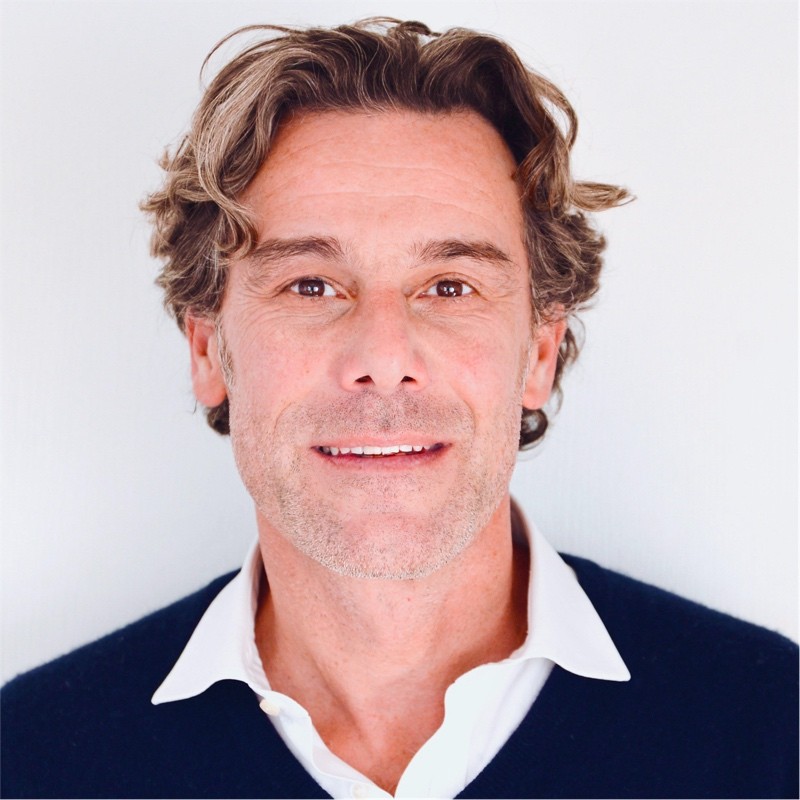
Jean-Hugues Gavarini
Jean-Hugues Gavarini is the CEO and co-founder of LAKE (LAK3), a real-world asset company leveraging blockchain technology to decentralize access to the global water economy. LAKE aims to ensure access to clean water for all, protect water resources, and deliver water to those in need through innovative technologies. Jean-Hugues has a diverse career spanning the luxury, fashion, and footwear industries. His career path includes notable successes at Mellow Yellow, Cremieux, and Tod’s. Raised between Silicon Valley and the French Alps, Jean-Hugues has always been immersed in technology and freshwater resources. In 2018, Jean became the CEO of Lanikea Waters, a water solutions entity based in the French Alps. In 2019, the concept of LAKE was born, embodying his commitment to innovation and sustainability.
News
Blockchain and AI Expo 2024
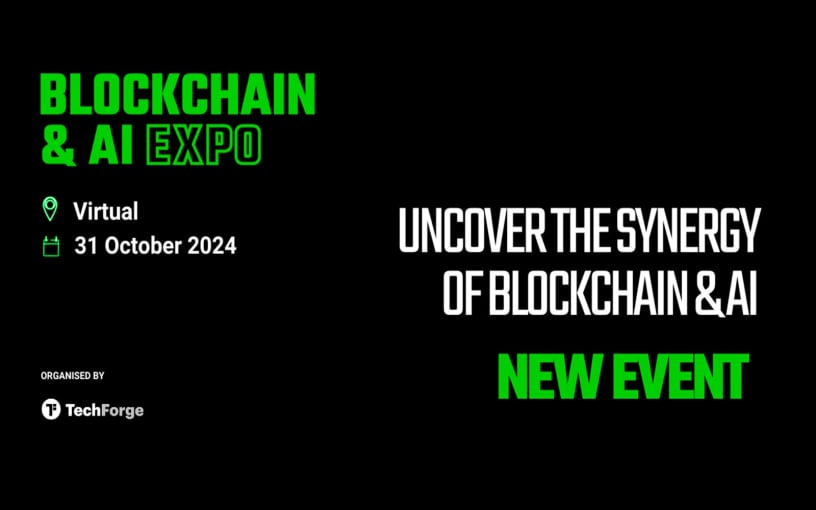
With rapid advances in the world of AI and blockchain, there are opportunities to leverage the security and transparency features of blockchain to improve the reliability and trust of AI systems and data transactions.
Explore the synergy of these advanced technologies in virtual mode Blockchain and AI Expowhich takes place on October 31, 2024 TO 10:00 GMT.
The event features cutting-edge presentations led by leading experts in evolving fields. Presentations are set to explore opportunities and challenges in the fusion of blockchain and AI, real-world applications, ethics, innovations in environmental sustainability, and more!
Gain a comprehensive understanding of how these technologies can synergistically drive innovation, optimize operations, and promote strategic growth opportunities. Develop your knowledge to facilitate informed decision making and give your company a competitive edge in the growing technology landscape.
News
Nigeria Eyes National Blockchain Nigerium for Data Sovereignty

Nigeria is keeping an eye on a new native blockchain network to protect the country’s data sovereignty.
According to local media, a team from the University of Hertfordshire has proposed the new blockchain, Nigeriato the National Information Technology Development Agency (NITDA).
Chanu Kuppuswamy, who leads the team, argued that relying on blockchain networks whose developers are located in other regions poses national security risks to the Nigerian government. He further said that Nigerium would allow the West African nation to customize the network to meet specific needs, while also promoting data sovereignty.
In his presentation, Chanu cited the recent migration of Ethereum to test of participation (PoS) consensus as an instance in which no Nigerians were involved but whose impact is far-reaching.
“Developing an indigenous blockchain like Nigerium is a significant step towards achieving data sovereignty and promoting trust in digital transactions in Nigeria,” he said.
While receiving the proposals in Abuja, NITDA’s Kashifu Abdullahi acknowledged the benefits a local blockchain would bring to Nigeria, including increased security of citizens’ data.
However, a NITDA spokesperson later clarified that Nigerium is still at the proposal stage and that the government has not yet decided whether to proceed or not.
“The committee is still discussing the possibility with stakeholders. Even if a decision is finally made, there is no guarantee that the name will be Nigerium,” the spokesperson told the media.
Nigerium’s reception in the country has been mixed. Some, like financial analyst Olumide Adesina, To say the network is “dead on arrival”. He believes the Nigerian government’s poor record in following through on its big technology plans will claim another victim. He pointed to the eNaira as a missed opportunity whose chances of success were much higher than those of Nigerium.
Others welcomed the proposal. Chimezie Chuta, who chairs the renewed The Nigerian Blockchain Policy Committee is “extremely optimistic“that Nigerium will be more successful than eNaira.
Speaking to a local news agency, Chuta stressed that eNaira failed because the central bank initiated the project on its own, without involving any stakeholders.
“They just cooked it and expected everyone to like it. [With Nigerium]there will be a lot of collaboration,” he said.
Registration of property title, digital identity and Certificate Verification are among the use cases that Nigerium is expected to initially target. However, Nigeria has already made progress in some of these fields through public blockchains.
SPPG, a leading school in governance and politics, announced in May the country’s first blockchain certificate verification system. Built on the The BSV BlockchainIt was developed in collaboration with the blockchain data recording company VX Technologies and local lender Sterling Bank.
Watch: The Future Has Already Arrived in Nigeria
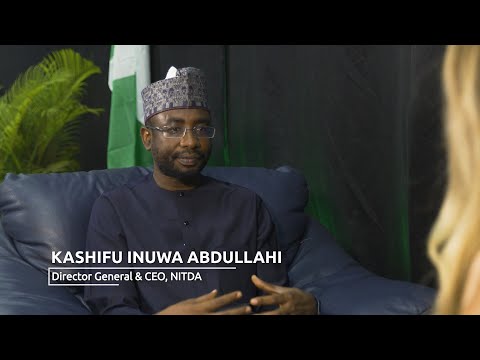 Italian: https://www.youtube.com/watch?v=M40GXUUauLU width=”560″ height=”315″ frameborder=”0″ allowfullscreen=”allowfullscreen”>
Italian: https://www.youtube.com/watch?v=M40GXUUauLU width=”560″ height=”315″ frameborder=”0″ allowfullscreen=”allowfullscreen”>
New to blockchain? Check out CoinGeek Blockchain for Beginners section, the definitive guide to learn more about blockchain technology.
News
Cambodian CBDC Developer to Build Palau Bond Market on Blockchain: Report

A Japanese fintech developer will build a blockchain-based bond market gateway for Palau, aiming to launch a trial in 2024 and a full launch the following year.
Japanese fintech developer Suramitsubest known for developing a central bank digital currency (CBDC) for Cambodia, is intended to build a Blockchain-gateway to the bond market based on the Pacific island nation of Palau, Nikkei He learned.
Soramitsu won the contract and plans to introduce the market on a trial basis in fiscal 2024, with a full launch scheduled for the following year, allowing the Palauan government to issue bonds to individual investors and efficiently manage principal and interest payments, according to the report.
The total cost of the project is estimated at several hundred million yen ($1.2 million to $5.6 million), less than half the cost of a non-blockchain alternative, people familiar with the matter said. The project has reportedly received support from Japan’s Ministry of Economy, Trade and Industry, with Japan’s foreign and finance ministries providing strategic and management advice on the project.
Soramitsu’s successful development of Cambodia’s CBDC in 2020 has boosted its reputation, with the digital currency’s popularity soaring, with over 10 million accounts opened by December 2023, representing 60% of Cambodia’s population. Following this, Cambodia’s central bank governor Chea Serey indicated intends to expand the reach of its CBDC internationally, particularly through collaboration with UnionPay International, the Chinese card payment service, and other global partners.
While Soramitsu’s work in Cambodia has been well received, the long-term popularity of CBDCs remains to be seen. As of late June, crypto.news reported a sharp drop in activity in India’s digital currency, the e-rupee, after local banks stopped artificially inflating its values.
According to people familiar with the matter, the Reserve Bank of India managed to hit the 1 million retail transaction milestone last December only after the metrics were artificially infiltrated by local banks, which offered incentives to retail users and paid a portion of the bank’s employees’ salaries using the digital currency.
-

 News1 year ago
News1 year ago“Captain Tsubasa – RIVALS” launches on Oasys Blockchain
-

 Ethereum1 year ago
Ethereum1 year agoComment deux frères auraient dérobé 25 millions de dollars lors d’un braquage d’Ethereum de 12 secondes • The Register
-

 News1 year ago
News1 year agoSolana ranks the fastest blockchain in the world, surpassing Ethereum, Polygon ⋆ ZyCrypto
-
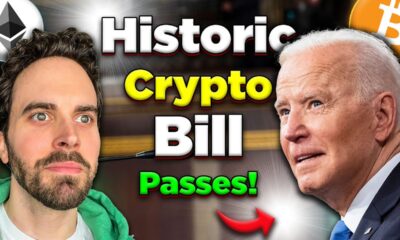
 Videos1 year ago
Videos1 year agoHistoric steps for US cryptocurrencies! With a shocking majority vote!🚨
-

 Videos1 year ago
Videos1 year agoIs Emorya the next gem💎 of this Bitcoin bull run?
-

 News1 year ago
News1 year agoSolana Surpasses Ethereum and Polygon as the Fastest Blockchain ⋆ ZyCrypto
-

 Videos1 year ago
Videos1 year agoNexus Chain – Ethereum L2 with the GREATEST Potential?
-

 Ethereum1 year ago
Ethereum1 year agoScaling Ethereum with L2s damaged its Tokenomics. Is it possible to repair it?
-

 News1 year ago
News1 year agoFnality, HQLAᵡ aims to launch blockchain intraday repositories this year – Ledger Insights
-

 Regulation1 year ago
Regulation1 year agoFinancial Intelligence Unit imposes ₹18.82 crore fine on cryptocurrency exchange Binance for violating anti-money laundering norms
-

 Bitcoin1 year ago
Bitcoin1 year agoBitcoin Drops to $60K, Threatening to Derail Prices of Ether, Solana, XRP, Dogecoin, and Shiba Inu ⋆ ZyCrypto
-

 News1 year ago
News1 year agoSendBlocks Debuts with Major Support to Improve Blockchain Data Management



